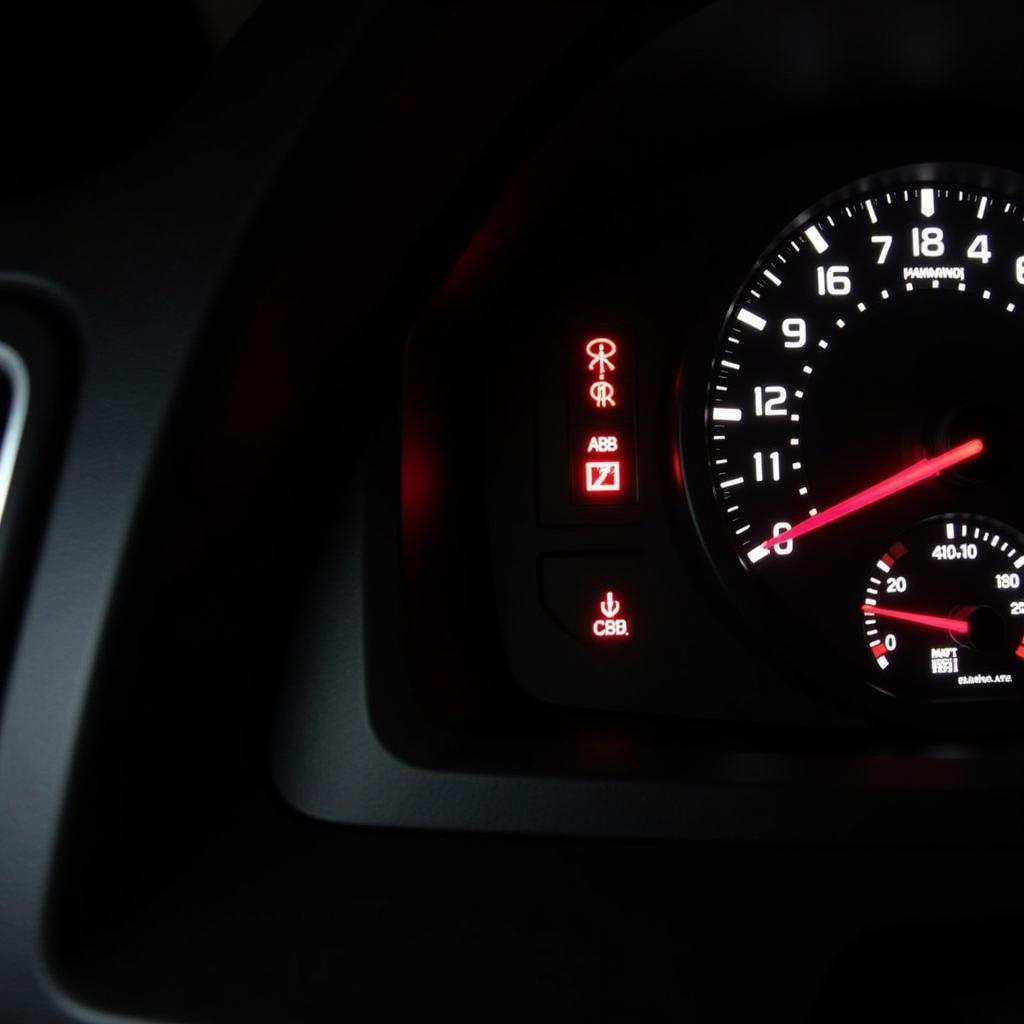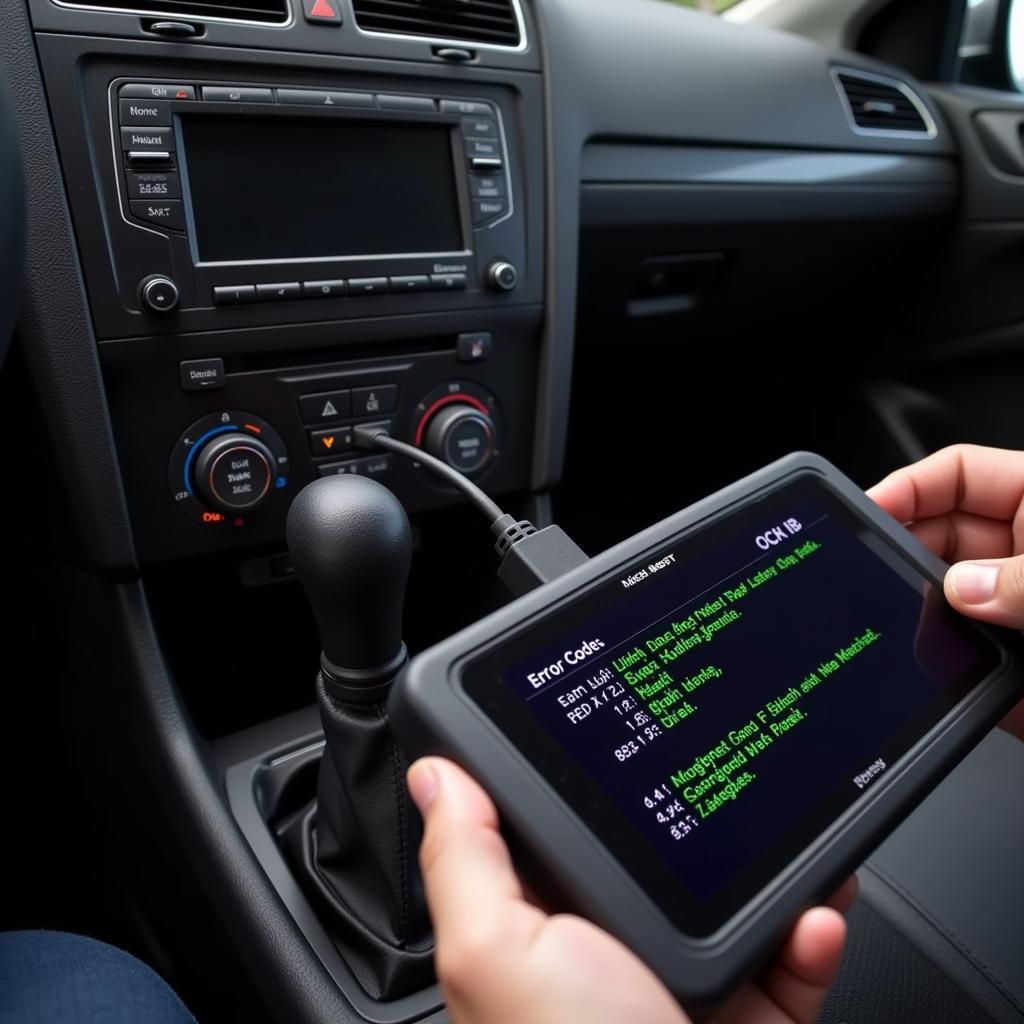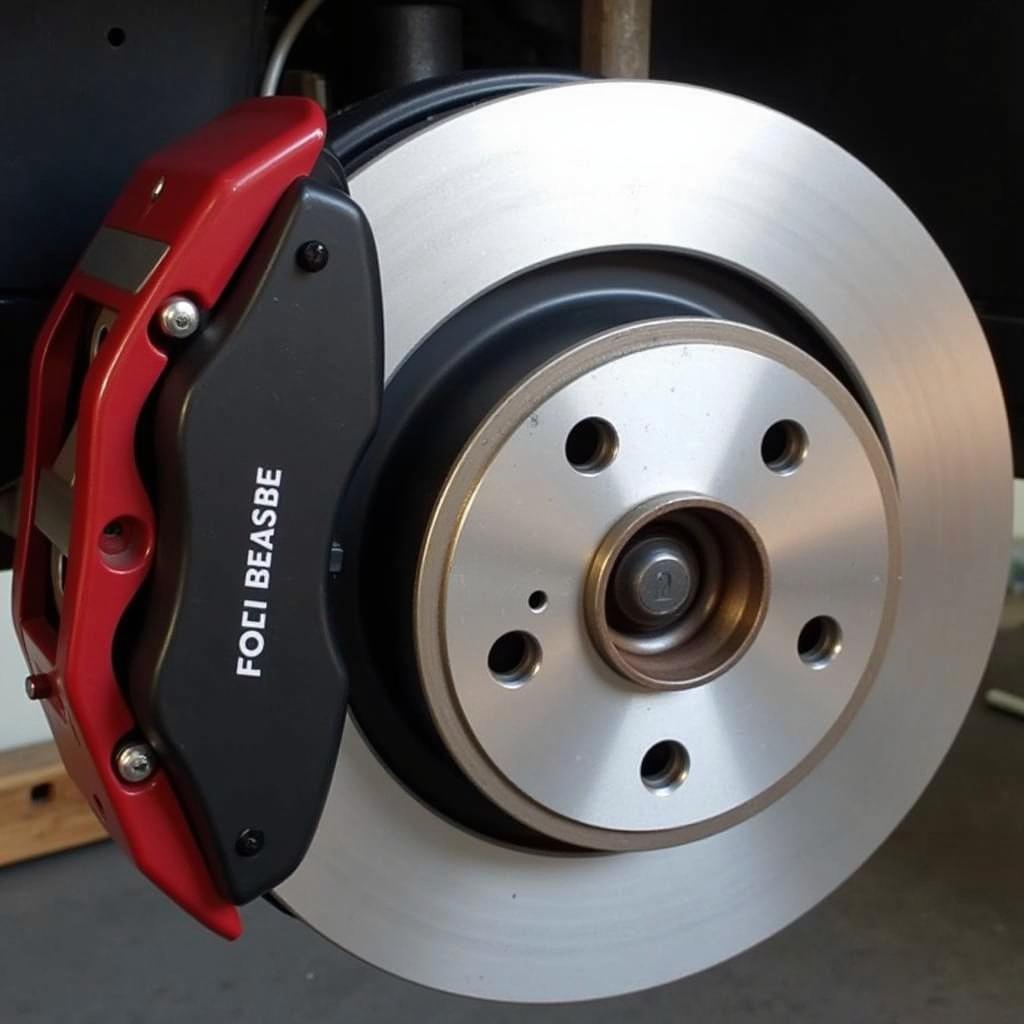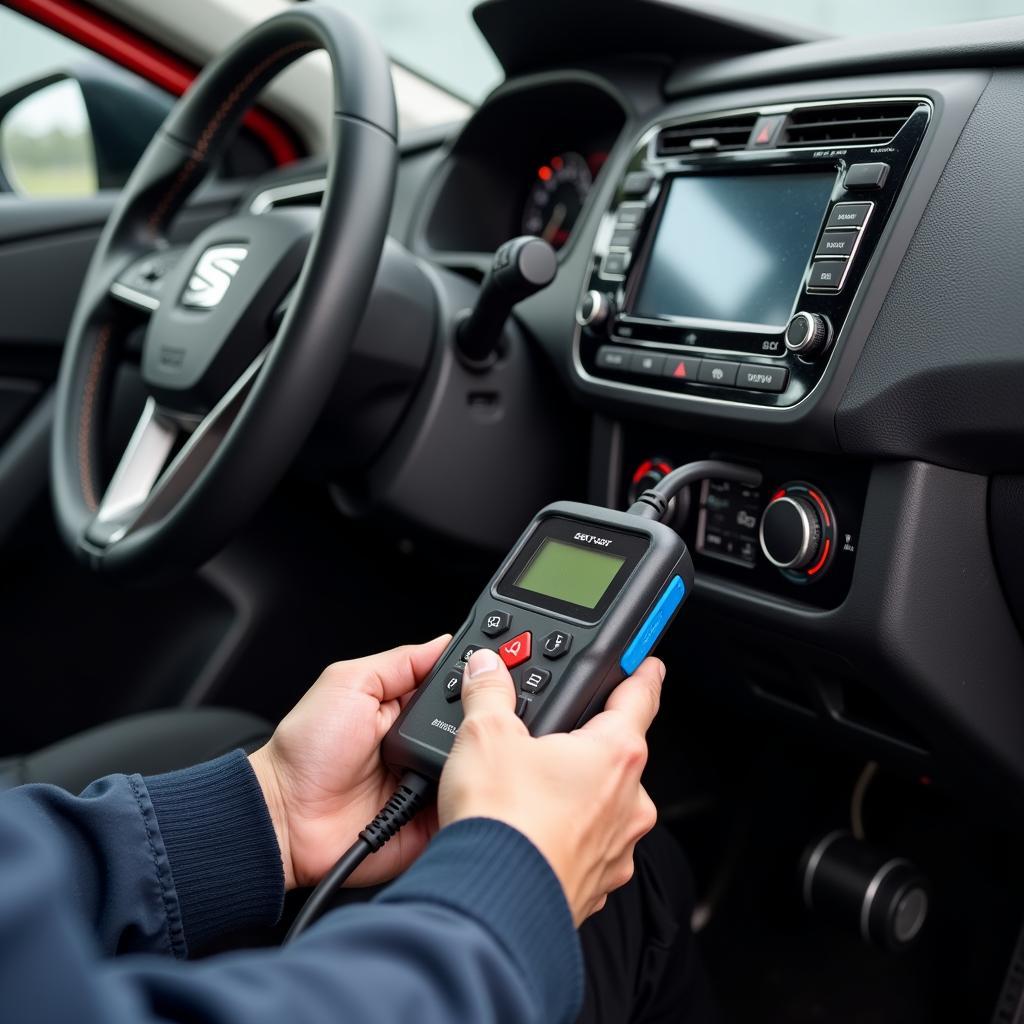The dreaded ABS and brake warning light illuminating on your VW Golf dashboard can be a disconcerting experience. Understanding the potential causes and troubleshooting steps can help you address this issue effectively. This article will guide you through common reasons why your VW Golf’s ABS and brake warning light might be on, offering practical solutions and expert advice.
If your VW Golf is experiencing both the ABS and brake warning lights simultaneously, the problem may be more severe than just worn brake pads. This could indicate a critical issue with your braking system. Don’t delay in addressing this. See a qualified mechanic immediately. You might find information related to brake pad warning lights helpful, like in this article about the 2014 Audi A6 brake pad warning light.
Understanding the Warning Lights
What do the ABS and Brake Warning Lights Mean?
The ABS (Anti-lock Braking System) light alerts you to a potential problem within the ABS system itself. This system prevents wheel lockup during hard braking, allowing you to maintain steering control. The brake warning light, on the other hand, signals a more general issue with the braking system, such as low brake fluid or worn brake pads. When both lights are on, it can point to a more complex problem.
Why are Both Lights On?
Several factors can trigger both warning lights. A common culprit is low brake fluid, which can compromise both the conventional braking system and the ABS functionality. A malfunctioning ABS module, faulty wheel speed sensors, or issues with the brake pressure sensor can also trigger both lights. Understanding the interconnectedness of these systems is key to accurate diagnosis. For instance, the brake fluid warning light mechanism might be similar across different VW models, like the VW Golf Mk5 brake fluid warning light.
 VW Golf ABS and Brake Warning Lights Illuminated
VW Golf ABS and Brake Warning Lights Illuminated
Troubleshooting the Warning Lights
How to Diagnose the Problem
Start by checking your brake fluid level. If it’s low, top it off and see if the lights go out. If the fluid level remains low after topping it off, you likely have a leak, requiring professional attention. If the fluid level is okay, you’ll likely need a diagnostic scan tool to read the error codes from the ABS module. This will pinpoint the specific issue within the system.
What Tools Do I Need?
Besides a diagnostic scanner, you might need basic tools like a wrench to check brake lines and connections. A multimeter can be helpful for testing electrical components like wheel speed sensors. Remember, working on brakes requires caution. If you’re not comfortable with car maintenance, it’s best to consult a qualified mechanic. Sometimes, the issue can be related to a specific sensor, like the 05 International 4200 brake pressure warning sensor.
 VW Golf Diagnostic Scan
VW Golf Diagnostic Scan
Can I Fix it Myself?
While some issues, like low brake fluid, can be easily addressed, more complex problems involving the ABS module or wheel speed sensors often require specialized knowledge and tools. Incorrectly diagnosing or repairing brake system components can be dangerous.
“Brakes are crucial for safety,” says John Miller, a certified automotive technician with over 20 years of experience. “Don’t gamble with your safety – seek professional help when dealing with complex brake issues.” He adds, “A simple scan can save you time and money in the long run by accurately identifying the problem.” You might find information relevant to older VW Golf models, such as the VW Golf 2003 brake warning light.
Preventing Future Issues
Regular Maintenance is Key
Regular brake inspections, including checking brake pad thickness and fluid levels, are crucial for preventing future issues. Following your VW Golf’s recommended maintenance schedule is essential. Remember, preventative maintenance is always better than dealing with a breakdown on the road. The wiring of the brake warning light system can also be a source of problems, as illustrated in resources like the VW bus brake warning light wiring guide.
 VW Golf Brake Maintenance
VW Golf Brake Maintenance
Conclusion
Addressing the ABS and brake warning light on your VW Golf requires a systematic approach. Start with the basics, like checking the brake fluid, and proceed with diagnostic scanning if necessary. Prioritize safety and consult a professional if you’re unsure about any aspect of the repair. Regular maintenance is the best way to prevent future brake system issues and ensure safe driving.
FAQ
-
What should I do if both the ABS and brake warning lights come on while driving? Pull over safely and check your brake fluid level. If it’s significantly low, do not continue driving. Call for roadside assistance.
-
Can I drive with the ABS light on? While you might still have conventional braking function, the ABS system will be disabled. This can affect your control during hard braking, especially on slippery surfaces. Get the issue diagnosed and repaired promptly.
-
How much does it cost to fix ABS and brake light issues? The cost varies depending on the underlying problem. A simple brake fluid top-up might cost very little, while replacing an ABS module can be significantly more expensive.
-
How often should I check my brake fluid? It’s good practice to check your brake fluid level at least once a month and before any long trips.
-
Can worn brake pads trigger both warning lights? While worn brake pads primarily trigger the brake warning light, severely worn pads can indirectly affect brake fluid levels, potentially triggering both lights.
-
What is the difference between the ABS and brake warning lights? The ABS light indicates a problem with the anti-lock braking system, while the brake warning light signifies a general issue with the braking system itself, such as low brake fluid.
-
Is it safe to ignore the warning lights? Never ignore these warning lights. They indicate potential safety hazards that require prompt attention. Ignoring them could lead to brake failure and accidents.

